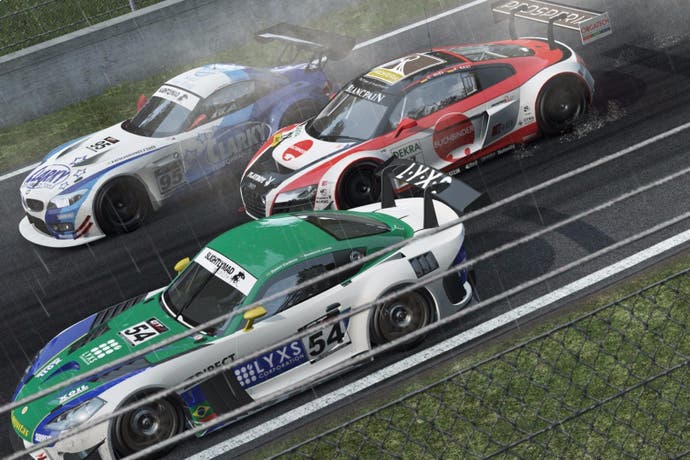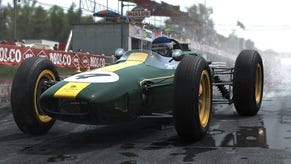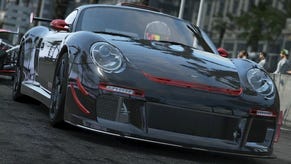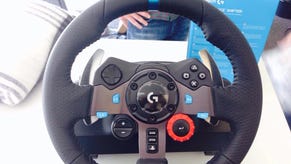Project Cars puts the sport back into motorsport games
Cold tyres, full tanks, can't lose.
Editor's note: This is an early impressions piece, based on a few days' play with Project Cars. We'll be posting our final review in the coming days, once we've tested the game on fully populated online servers.
What a couple of weeks it's been in racing games. Last week, Codemasters' Dirt Rally came out of nowhere to revive the spirit of ColinMcRae and Richard Burns Rally, and with them the idea that a stripped-back dirt-track time trial - no bells, no whistles, no desperate extreme sports makeover - could make a thrilling racing game. Meanwhile, over the last few days I've been playing Slightly Mad Studios' Project Cars, released this week - and it reminds me of nothing so much as Codemasters' TOCA Race Driver series. It's 2005 all over again, we're on a blustery airfield in the middle of England, there's an overwhelming smell of burnt rubber and it's raining. This, if you don't know it, is a very good thing.
Admittedly, the peculiarly unglamourous glamour of grassroots motorsport may not translate that well if you're not a fan of the real thing, or of the games that simulate it, like TOCA or SimBin's GTR and Race Pro. Perhaps this is why Project Cars has puffed itself up slightly as a pretender to the twin thrones of Forza Motorsport and Gran Turismo. There's been a lot of hype about its (admittedly impressive) graphics tech, with shots and video showing off sumptuous weather effects and gleaming models of exotic street-legal hypercars like the Pagani Huayra. The extensive track list includes scenic point-to-point drives along the Côte d'Azur and the Pacific Coast Highway. These are the familiar trappings of an aspirational CarPG.
But as much as it might have been pushed by the developers themselves, this is not a fair comparison for Project Cars. It is both unflattering and not flattering enough. Funded by an unconventional crowdfunding scheme and developed in collaboration with a tight-knit community, this game can't hope to match Sony and Microsoft's in-house flagships when it comes to production values or wealth of content. But it has them licked in another, crucial area: delivering an exciting and authentic motor racing experience for the solo player.
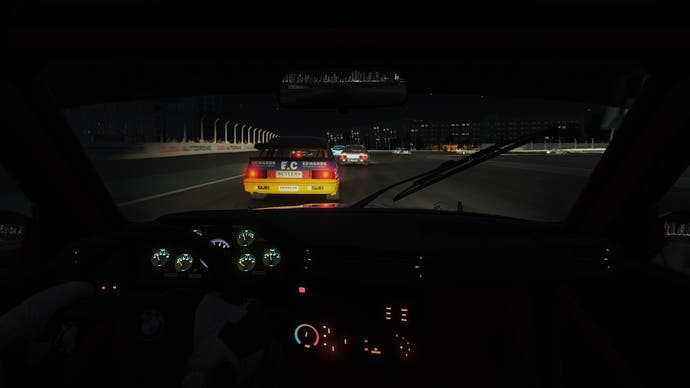
Project Cars achieves this in a couple of ways. The first is with superior opponent AI. Neither the mindless racing-line drones of Gran Turismo nor the theatrical fakes you come across in other games, who conveniently stage passes and crashes in your line of sight, these virtual racers display a respect for track position and an awareness that contact is usually a bad idea. This is a game in which you can overtake by getting your elbows out and muscling your opponents off their line - as opposed to just braking late, pointing your nose at the apex and hoping you clear them before they smack into the side of you. When you're often racing in a field of identical cars, with no performance advantage, that's crucial. It's also brilliant fun, requiring a judicious mix of courage, aggression and timing.
Secondly, Project Cars starts with the assumption that real motorsport rules can be interpreted for a game in a way that's fun. The assumption is a good one. Why shouldn't gingerly practising your lap on cold tyres, nailing it in qualifying and then carefully managing a race from the front be as satisfying as barnstorming your way past witless rivals from the back of the grid? Failing to put that lap together and turning a poor 12th place into a respectable 5th is, arguably, an even better feeling.
In most situations, Project Cars gives you tremendous flexibility to play it how you like - this is an incredibly customisable game in every respect, from race length and rules to damage modelling and controller calibration (it even has a graphics settings menu on console). But the Career mode is very much based around the idea of the race weekend, with a practice session, a qualifying run to determine grid position and then one or two race sessions of varying rules, some including mandatory pit-stops. In my first race in the Formula Rookie championship - buzzing, chuckable little open-wheel cars in a Formula Ford style - I was shocked and delighted to discover that not only could I jump the start, I would have to take a drive-through penalty in the pits to pay for it.
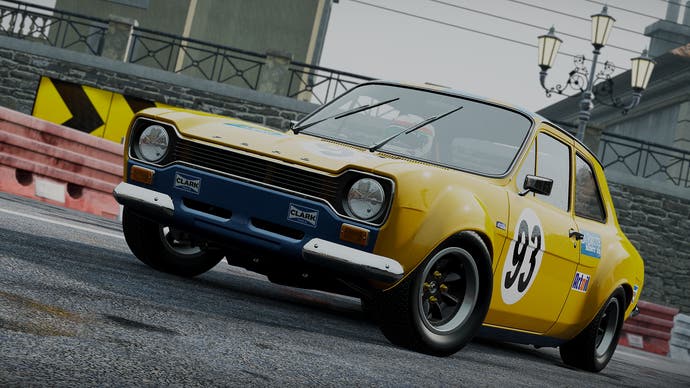
All this plays into a career structure which gamely, if a little gauchely, portrays you rising through the ranks of motorsport, season by season, in a series of faux emails and tweets. It's all unlocked from the start - you can jump into an unlicensed Formula "A" car from the off if you like - but there's a lot of fun to be had wrestling racing-spec Renault Clios around parochial autodromes like Snetterton and Oulton Park and seeing if you can place well enough in the championship to earn a shot at a Ginetta, and then a Mustang, and then a BMW Z4, and so on until you're racing the formidable Audi R18 prototype at Le Mans or Spa.
It's simply the best single-player interpretation of motorsport in a video game since 2006's wonderful TOCA Race Driver 3. It's also a strikingly and entertainingly different proposition from the car-collecting grind espoused by its console rivals. Project Cars has more, and more relevant, competition on PC - the brilliant simulators RaceRoom, iRacing and Assetto Corsa - but the generosity and strength of its career mode, with those large fields of capable AI drivers, stand out and earn it a place at that table.
As for how it drives, it's fair to say that Project Cars is not the most exactingly realistic or physically involving sim out there, but the switchback nerviness of Slightly Mad's Need for Speed: Shift games is, thankfully, a distant memory. The handling is neutral and responsive with a very good tyre simulation; you can really feel the rubber grip harder as it warms up (practice and qualifying sessions start you on cold tyres), or let go as you four-wheel-drift over the blind crests of Brands Hatch and Donington. You may need to put in some work in the settings screen to get your pad or wheel feeling right, though; playing on PC with a Fanatec CSR wheel and an Xbox 360 controller, I found the wheel defaults too slow, and the pad defaults too twitchy.
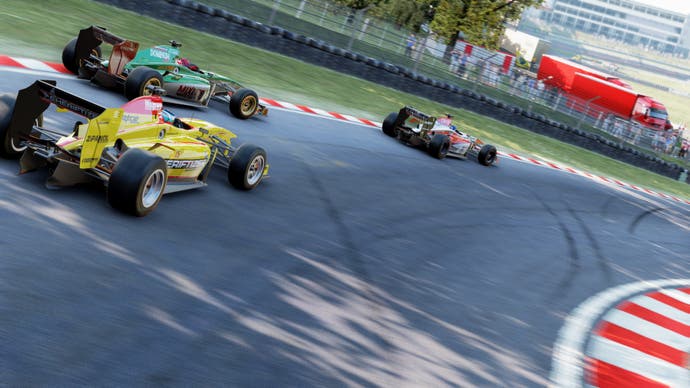
There's much still to address in our review later this week, notably online racing, which at time of writing consists of no more than a handful of custom games at a time and an apparent lack of matchmaking or playlists: will online Project Cars live or die by the strength of its community? There's also the fact that the excellent career mode, in its fierce focus on contemporary motorsport, ignores half the game's modest car list - the road cars and historic racers - and a even a good portion of its more lavish track list. It seems like you'll have to dig many of Project Cars' delights out for yourself, from a sometimes impenetrable web of options and settings.
That Career mode, though; some of us have been looking for its like for almost a decade. The earnest, hard-fought drama of its real-world track action is enough to earn Project Cars a recommendation for any fan of a good, old-fashioned motor race.
